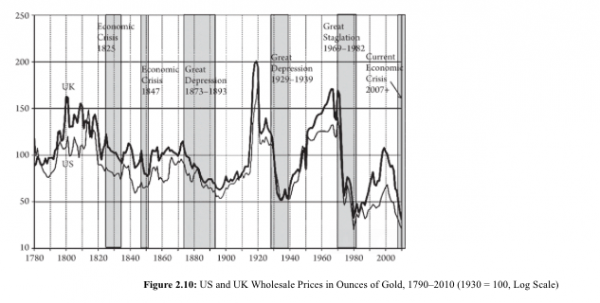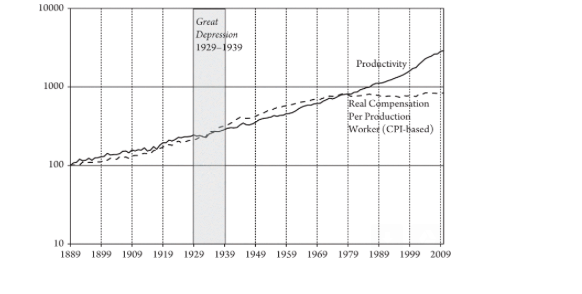
The Future of Work Conference sponsored by the Labour Party this week was a stimulating look at a range of ideas for dealing with the challenges that the current system is preparing for people in the 21st Century.
However, for many speakers there appeared to be a technological determinism that I believe should be resisted. This involves a belief that change is inevitable, the outcome will be widespread loss of jobs and increased insecurity, and all we can do is try and minimise the damage.
While it may be true that 40% of current jobs won’t exist in 15 years time, it is most likley there will be others. The danger is that their will be a social and political elite monopolising all the gains while those losing their jobs are forced into low-paid unskilled labour with few rights or protections.
While it is true that there will be rapid technological change over the coming decades, it is also true that politics, social movements and class struggle will be esssetial elements in what the outcome of that technological change will be.
To take one example, the technology behind Uber can be used to turn workers into slaves bidding their time on the spot market for drivers, or it could be used to empower a cooperative movement of drivers that shared work, guaranteed at least the minimum wage and ensured their legal rights and complied with appropriate health and safety laws. The driverless car, if it proves successful, could also eliminate all taxi driver jobs and create new public transport possibilities.
Technological change, including accompanying social upheavals, have been present for the entire 250-year history of capitalism.
Capitalism is a system of expanded reproduction. It grows in cycles that expand the prodcution of commodities with each cycle. As a system it has a growth rate of around 2-3% a year. That has also been true for 250 years. The ultimate purchasing power of consumers, “aggregate demand” in the lingo of economists, appears to have laws that limits its growth.
There is a wideranging debate over why that may be so. I adhere to an orthodox Marxist view that purchasing power is ultimately determined by the production of the money commodity gold.
This view is defended by the authors of the Critique of Crisis Theory Blog and summarised in this article: “History has shown that the existing global hoard of gold and its rate of increase ultimately governs, through the mechanisms of price, interest rates and monetarily effective demand, the growth of the global capitalist market. These must be taken into account in any analysis of the general crisis of capitalism.” .
That is also why there are business cyles – they are the periodic clashes between the powerful forces to produce commodities without limit and the actual limit of the market.
This Marxist explanation may not be correct. But there must be powerful objective laws operating in the capitalist system of production to limit its growth rate to 2-3 percent given that the system itself, because of competition, is driven to expand production to the absolute limit possible. Pro-capitalist economists of both the Keynesian and Monetarist varities favoured the removal of “paper” currencies from having any formal relationship to gold. They got their wish in the 1970s. But there has been no escape from the objective limits to growth whatever the monetary policy that may be being followed by a particular government.
That is also fundamentally why there will remain limits to the application of machinery to production – under capitalism. Capitalism produces commodities – items for sale at a profit. If there is no one with the income to buy, there is no sale. If there is no prospect of a sale there will be no production. With a limit to the expansion of the market all that can be achieved is intensified competition with a further division and redisivion of the existing market.
History disproves “Says Law”, one of the fundamental “theories” of pro-capitalist economists, which is that production creates its own demand. If that were true, capitalism would never have crises. Instead crises recur with monotonous regularity every 7-10 year. It also seems that there is a period of prolonged depression every four or five business cycles. These have occurred in the 1840s, 1870s, 1930s, 1970s, and it seems we have another on our hands today.
The US economist Anwar Shaikh uses the movement of wholesale prices measured in gold.

The crisis appears to restore order to the system through disorder.
The potential price of that disorder is now exponentially larger than any previous period of human history because of capitalism’s complete conquest of the globe. Billions of people are now connected through markets and the dependence on money for every social transaction. This makes this sytem increasingly complex and dangerous. That is why we have the desperate attempts to manage the crisis that exists by the world’s central banks and the “unorthodox” measures being taken to keep the system turning over and hold off a new collapse.
We have actually already several decades of social, political and economic change in the advanced capitalist countries like New Zealand that has seen millions of jobs eliminated in the traditional industries like steel, textiles, clothing, footwear, car manufacturing and the like. Most have been relocated to China, Mexico or other low-wage countries. Replacement jobs have usually been less well paid and less likely to have union protection. Some remain a form of manufacturing like fast food. The companies may be huge and highly profitable like McDonald’s, but the workers remain poorly paid with few rights.
Capital is always seeking to beat its competitors. That is what drives productivity growth. That is what ultimately drives technological change. There has been a permanent drive to replace living labour with “dead labour” in the form of machines. Robots are merely the latest manifestation of this trend.
Capital also is always looking for ways to turn all human activity into the production of commodities for sale. This includes takeaway prepared meals (McDonalds); music (LP’s. CD’s, Itunes); art (prints, copies, forgeries); sport (stadium tickets, TV rights, souvenirs); films (Videos, DVD’s, Netflix); medicine (privatisation, pills, pills, pills); education (privatisation, fees, loans). Debt (and the extraction of interest) has also become a mass phenomenon. These are simply the most recent arenas for conquest by big business in the advance of capitalist “civilisation”.
What is different today, is that the last few decades saw a gap develop between the advance of productivity and the advance of median or average incomes.
The figures for the USA below are courtesy of Anwar Shaikh. They could be essentially reproduced for most advanced capitalist countries. I strongly recommend an article by UK academic Matt Vidal which discusses this trend called What’s Behind the Rise in Income Inequality? Technology or Class Struggle?

Nearly all of the benefits of the productivity advance has been captured by the one percent in society.
This was the product of a social and political class struggle where the working class was defeated in a series of battles and then pushed down and marginalised. This has refelcted in huge declines in rates of unionisation. Private sector union rates in New Zealand have declined from around 40% to less than 10% today.
Technology can’t be stopped. But who controls that technology will be the product of social and political struggles to come.
The battle to defeat zero hour contracts proves that it is possible to turn back the tide of defeat and demoralisation that afflicts much of the working class . It is possible to win fights to improve the social, political and economic position of working people under capitalism. We don’t need to see the future as one where we are turned into slaves of a technocratically priviledged and empowered elite.
The proposal discussed at the conference of a Universal Basic Income would also have benefits for working people. We must fight for such reforms under the existing system even if we want to ultimately replace it. The more we can protect and empower working people the greater the chance that more fundamental social change can be put on the agenda.
Some of the speakers had a bleak view of the future with working people powerless and defenceless. But we don’t need to accept that future as pre-determined.
However if we want to change the future we need to fill working people with a new vision that sees them being able to take charge of the technological and economic changes that are coming so we can liberate humanity from degrading drudgery and servitude.
We need work to be a safe, creative and shared practice. We need future lives where wealth and work is shared. We need access to lifelong learning. Everyone needs to be able to develop our creative identities to the fullest extent possible and desired.
And the planet on we want to lead these rich and varied lives must be protected to the fullest extent possible for being raped and pillaged in the pursuit of profit.
Capitalism’s relentless pursuit of growth and profit is incompatible with these goals.
The central problem with the Future of Work Conference was a refusal to acknowledge that fact.





Well done mike yes
I buy the principal that everyone that wants to work should have a meaningful job.
And share in our collective common wealth equally.
So call me a socialist but it is the only way forward now we are in this rich vs poor void.
Egalitarianism live forever.
The collapse of western societies (including NZ) over the next decade will be the consequence of the total failure of politicians and most of the general public to address any of the fundamentals.
1. Peak oil is now in the past, and desperation attempts to prop up the energy system via high-cost and low-energy-return fracking and tar-sands extraction are failing. We are close to falling down the global energy cliff:
https://ourfiniteworld.com/2016/01/07/2016-oil-limits-and-the-end-of-the-debt-supercycle/
2. Ponzi finance and casino economics that have dominated western societies since the Industrial revolution are unravelling; in the history of banking, until very recently there have never been negative interest rates. Complete collapse is inevitable and is very likely imminent, now that now that global net energy is in decline, since without energy nothing happens. Ponzi finance and Ponzi economics cannot function if the energy supply is contracting.
3. Unabated CO2 emissions (atmospheric CO2 will rise to at least 408ppm this year) are resulting in infrastructure damage from storms, crop failures, declining plankton density, rapid ice melt etc., and in the near future, will cause inundation of low-lying regions. A little further down the track unabated emissions will render the Earth largely uninhabitable for humans.
https://scripps.ucsd.edu/programs/keelingcurve/wp-content/plugins/sio-bluemoon/graphs/co2_800k_zoom.png
‘Technology can’t be stopped.’
Technology without an energy supply is worthless trash.
Humans without an life-supporting environment are dead.
I’m actually interested to see how quickly my old job is automated. The systems they’ve already set up make it so it’s half automated already. All you need to do is bloody standardize fucking underground mines and make them all the same, and any stupid robot could dig dirt all day and night without trouble. And standardizing god damn mines is something they needed to do anyway.
My new job that I’ll hopefully get started on next year presents an interesting challenge since I’ll basically be acting as a babysitter to a solar powered calculator :D, but the fact that it requires one means I’ll probably keep my job for a while.
1000% Afewknowthetruth
The “Captains of industry have no conscience or natural common sense have they??
It is worthwhile to have debates on the future of work.
Only a National Party deadhead would disagree that the concept of work is different than it was in the Victorian Age (where most of National’s policies originate).
In the past people worked for themselves to survive, there was no proper concept of a national (or international) economy.
Things are very different now and talking about how the concepts of work, income, leisure and lifestyle need to adapt in our modern world is a positive thing.
The world’s neo-liberal capitalistic system does not lend itself to equality, environmental protection or friendship. It needs to change and although it will undoubtedly be a long tough process, you have to start somewhere.
Expect National and the 1% to disparage the whole process as they typically do whenever anyone else has a good idea that involves people getting a fairer deal.
This is indeed an interesting and important topic. I do think there needs to be a strong leader to move us culturally away from profit at all costs, a product of the neoliberal experiment of the last 30 years, to a culture of meeting human needs while caring for our environment. What is also overlooked here are women as mothers and family life in relation to a move to push all adults into work and the resulting denial of the importance of the direct care of children by parents. I hear many women who prior to birth expected to slot back into her previous work life, now in grief at the reality of leaving a baby/ toddler before she felt either were ready. We need a family friendly workplace in the future; we need our Governments to do what they are meant to and regulate to protect society and people. Strangely as said at this conference the way things are right now has to shift because ultimately even the privileged 1 % cannot survive it because they need the rest of us to keep their privileged position.
Mothers don’t get any income at all. If anything mothers are subsidising there partners hobby job. Even if a wife works, she’s still subsidising his hobby job.
The boys have to bring home a single family income so the gurls can be girls, create there own industries with there own money instead of competing in male industries.
I hear it this weekly, every time me and my girlfriend go to the mall. My money is our money, and her money is hers.
But hey, if a UBI would free up enough time for woman to pursue other leisures and get out of the house. Then hey let’s make it happening.
Reich said the capitalists and 1% have a choice between a large share of a deminishing economy or a small share of a growing economy. I take the latter. Give the people a UBI. Just for gods sack labour. Don’t cock this up like Rogernomics
overall some good thoughts although the idea that “purchasing power is ultimately determined by the production of the money commodity gold” is a bit old fashioned. The gold standard has been eliminated for a long time & economies have prospered & declined while gold is still being mined, stored & used in various industries. When times get tough you can’t eat it & its value will drop along with all the other bubbles in the economy.
Comments are closed.